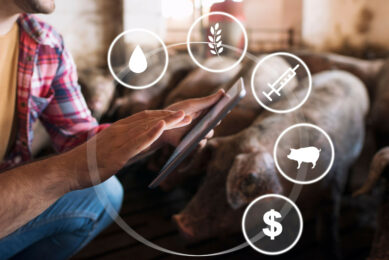Novozymes reduces carbon footprint

By working with transport companies, Novozymes has succeeded in reducing traffic supplying the company’s production site in Kalundborg. With 800 fewer trucks on Denmark’s roads, Novozymes claims to have reduced its CO2 footprint by 148 tonnes a year.
Instead of freighting goods and products by truck, Novozymes is working with transport companies to get goods sent by ship directly to the production site at Kalundborg. This means there are fewer trucks on the roads between Copenhagen and Kalundborg, reducing CO2 emissions by 148 tonnes a year.
The road system on the Danish island of Zealand is under severe strain, with traffic particularly heavy in the Copenhagen area. Working with Kalundborg Harbour and the shipping company Unifeeder, Novozymes is now taking measures to eliminate a good share of the heavy transport normally associated with industrial production.
Some of the transport will be switched from truck to ship: ”Instead of receiving our raw materials from truck containers, we’re now reorganising part of our transport so that our raw materials are shipped directly to Kalundborg Harbour,” explains Peter Hansen, Transport Manager at Novozymes. “On an annual basis we expect to be able to take 800 articulated trucks off the roads between Copenhagen and Kalundborg. This represents a CO2 saving of 148 tonnes a year and of course less noise and nuisance on the roads.”
Saves money and reduces carbon footprint
A substantial part of Novozymes’ global production is based in Kalundborg, which is 100 kilometres from Copenhagen in western Zealand.
Novozymes’ plant in Kalundborg uses raw materials from all over the world. At present these are typically shipped to Copenhagen Free Port or the port in Hamburg in Germany, and then unloaded and driven the rest of the way by truck.
“We have worked with Kalundborg Harbour to get this project up and running. Kalundborg Harbour is now geared up to handle this form of logistics, and in the light of rising fuel costs, it makes good sense for us to have the containers freighted direct to Kalundborg from the major ports of Europe.
“Embarking on a project such as this is an obvious thing to do, because it makes good financial sense. As well as saving on transport costs, what’s also been important for us is being able to reduce the carbon footprint of our suppliers when they are freighting goods for us. Another plus point is that fewer trucks mean less noise for local residents and less strain on the roads,” says Peter Hansen, and concludes:
”We see both these as important elements of our efforts to carry out all our production in the most responsible and environmentally aware way we can.”











